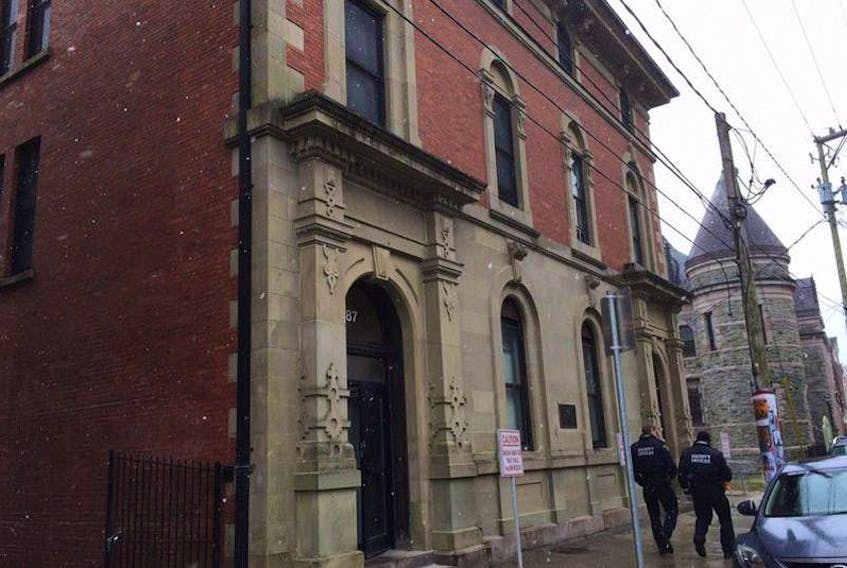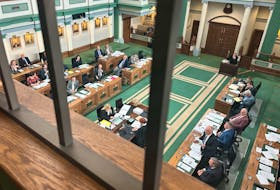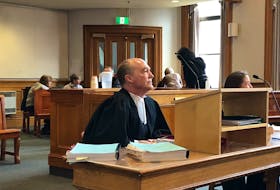St. John's, N.L. — The province’s top court has ruled that the names of public servants and their salaries must be made available.
In a two-to-one decision, released late Monday, the Newfoundland and Labrador Court of Appeal overturned a lower court’s ruling regarding the Access to Information and Protection of Privacy Act (ATIPPA) law, concluding that the public has the right to know the names of public servants and how much they make.
“The public has a legitimate and significant interest in the identities of the people who receive public money,” Justice Charles White wrote in the decision, which was concurred by Justice Lois Hoegg.
Justice Gale Welsh had a dissenting opinion.
The case began March 4, 2016, when then-Telegram journalist James McLeod, working on the newspaper’s sunshine list project, requested a list of public employees earning more than $100,000 by filing ATIPPA requests to various government bodies
Some agencies handed over the information, but the four health authorities and the Newfoundland and Labrador English School District released only job titles and remuneration, holding back the names pending consultation with employees.
After the Eastern School District notified the affected employees that it would release the information, the Newfoundland and Labrador Teachers’ Association (NLTA) appealed the decision, arguing the act, properly interpreted, did not authorize the disclosure of such information.
It added that making the information public would lead to acrimony between teachers and parents and cause undue harm and undermine the education system.
In general, the act states that public bodies must disclose the information unless it falls into some particular exception. The NLTA argued that the exception is that it would be “an unreasonable invasion of a third party’s personal privacy.”
The province insisted that it’s not. Rather, it said, it is information about a third party’s position, functions or remuneration as an officer, employee or member of a public body or as a member of a minister’s staff.
In allowing the appeal, Justice Gillian Butler concluded that the employees’ privacy interests outweigh public interest in disclosing their names.
But White and Hoegg disagreed.
White stated that disclosing names, with salaries, promotes transparency and accountability in government and public bodies.
“People have a right to inquire whether politicians or senior civil servants are hiring or promoting family members or friends,” White said. “People have a right to inquire whether campaign donors or volunteers are proliferating on the payroll. Names are necessary to satisfy these inquiries.”
White said identifying the public employees can also be valuable for the employees themselves, to ensure employment equity and pay equity.
White pointed out that an external committee, chaired by Clyde K. Wells, concluded that the act was meant to allow the disclosure of employees’ names.
“(It) is meant to ensure that members of the public can know who is on the public payroll, what their duties are, and how much they are being paid,” White said.
In her dissenting decision, Welsh said “it’s difficult to understand” to how knowing the names of all teachers and other board employees who earn more than $100,000 annually is necessary to permit citizens to participate meaningfully in the democratic process, how it will address the objective that “elected officials, officers and employees of public bodies remain accountable,” and how it is consistent with protecting the privacy of those individual teachers and employees.
“If the objective is to provide the public with statistical information regarding the expenditure of public funds for teachers and other board employees,” she said, “this can be done without naming individual teachers and employees who earn more than a specified salary.”
She also questions why a threshold salary of $100,000 is relevant.
“Are those earning $90,000 less accountable? Is the board less accountable for those earning $80,000 annually?” she said.
She said the 2015 report by a committee conducting a statutory review of the existing access to information act recommended that it’s “unfair to single out employees at any particular income level.”
Welsh also said an individual’s name falls within the definition of personal information.
“I am satisfied that the appellate judge did not err in concluding that the disclosure of names, as requested in The Telegram’s application under the Access to Information Act, would result in an unreasonable invasion of the employees’ personal privacy,” she said.
Twitter: TelyCourt









